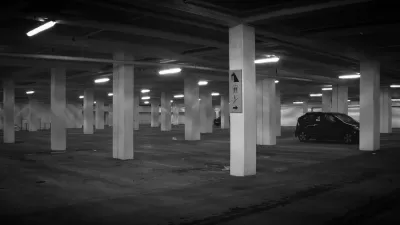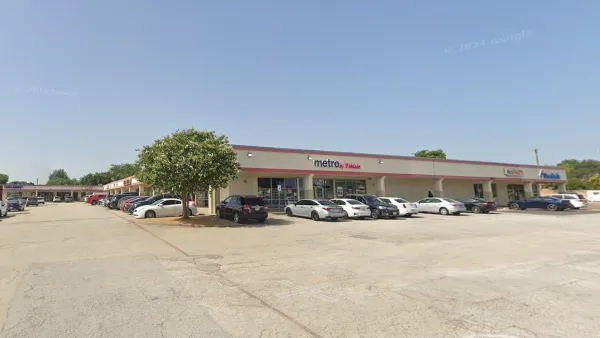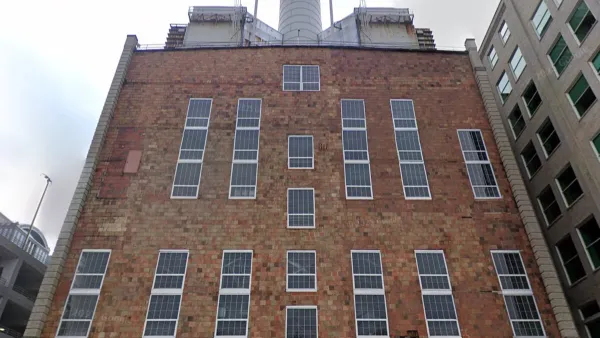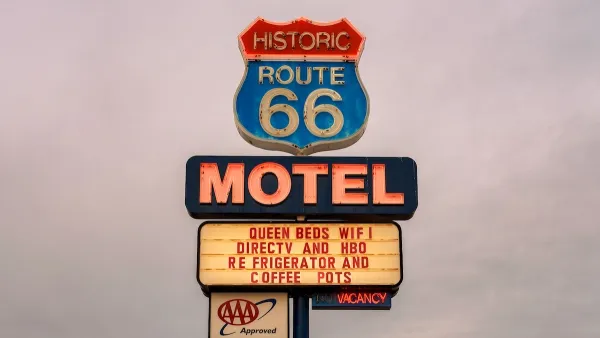As garage operators find their businesses increasingly unsustainable, some are looking to affordable housing as the logical next incarnation of their buildings.

"A rapidly declining demand for parking space in the heart of America’s cities" could be an opportunity to repurpose parking garages into affordable housing, writes Wes Guckert.
Reduced numbers of workers commuting into Central Business Districts combined with "the increased emphasis the Biden administration – and many cities around the country – have placed on climate action and the need to limit automobile use" have led to a "nearly impossible" situation for garage operators, who now find their traditional business model unsustainable.
"Some operators have been fortunate enough to own lots or garages that sit on prime parcels of center-city land. For them, selling their property might represent a viable option, although with demand for office and adjacent retail space declining, this is not as profitable a solution as it was prior to COVID-19." But some operators found creative ways to generate revenue: during the pandemic, "[s]ome garages were transformed into outside dining areas or makeshift drive-in movie theaters, while others were used to house pop-up warehouses, storage units and parking for Amazon delivery fleets."
Another useful conversion: affordable housing. "[E]nterprising operators are now lobbying planning and zoning boards in cities around the country to relax restrictions so that they can retrofit their under-used garages to provide affordable living space for families." Some projects have already become reality. "[T]he success of units such as a derelict 500-car garage in Wichita, Kansas, that was recently converted into 44 one-bedroom apartments demonstrates that such conversions are not only possible, but can play an important role in addressing this country’s longstanding problems with affordable housing and homelessness. "
FULL STORY: Giving new life to deserted parking garages

Maui's Vacation Rental Debate Turns Ugly
Verbal attacks, misinformation campaigns and fistfights plague a high-stakes debate to convert thousands of vacation rentals into long-term housing.

Planetizen Federal Action Tracker
A weekly monitor of how Trump’s orders and actions are impacting planners and planning in America.

In Urban Planning, AI Prompting Could be the New Design Thinking
Creativity has long been key to great urban design. What if we see AI as our new creative partner?

Portland Raises Parking Fees to Pay for Street Maintenance
The city is struggling to bridge a massive budget gap at the Bureau of Transportation, which largely depleted its reserves during the Civd-19 pandemic.

Spokane Mayor Introduces Housing Reforms Package
Mayor Lisa Brown’s proposals include deferring or waiving some development fees to encourage more affordable housing development.

Houston Mayor Kills Another Bike Lane
The mayor rejected a proposed bike lane in the Montrose district in keeping with his pledge to maintain car lanes.
Urban Design for Planners 1: Software Tools
This six-course series explores essential urban design concepts using open source software and equips planners with the tools they need to participate fully in the urban design process.
Planning for Universal Design
Learn the tools for implementing Universal Design in planning regulations.
Gallatin County Department of Planning & Community Development
Heyer Gruel & Associates PA
JM Goldson LLC
City of Camden Redevelopment Agency
City of Astoria
Transportation Research & Education Center (TREC) at Portland State University
Jefferson Parish Government
Camden Redevelopment Agency
City of Claremont





























